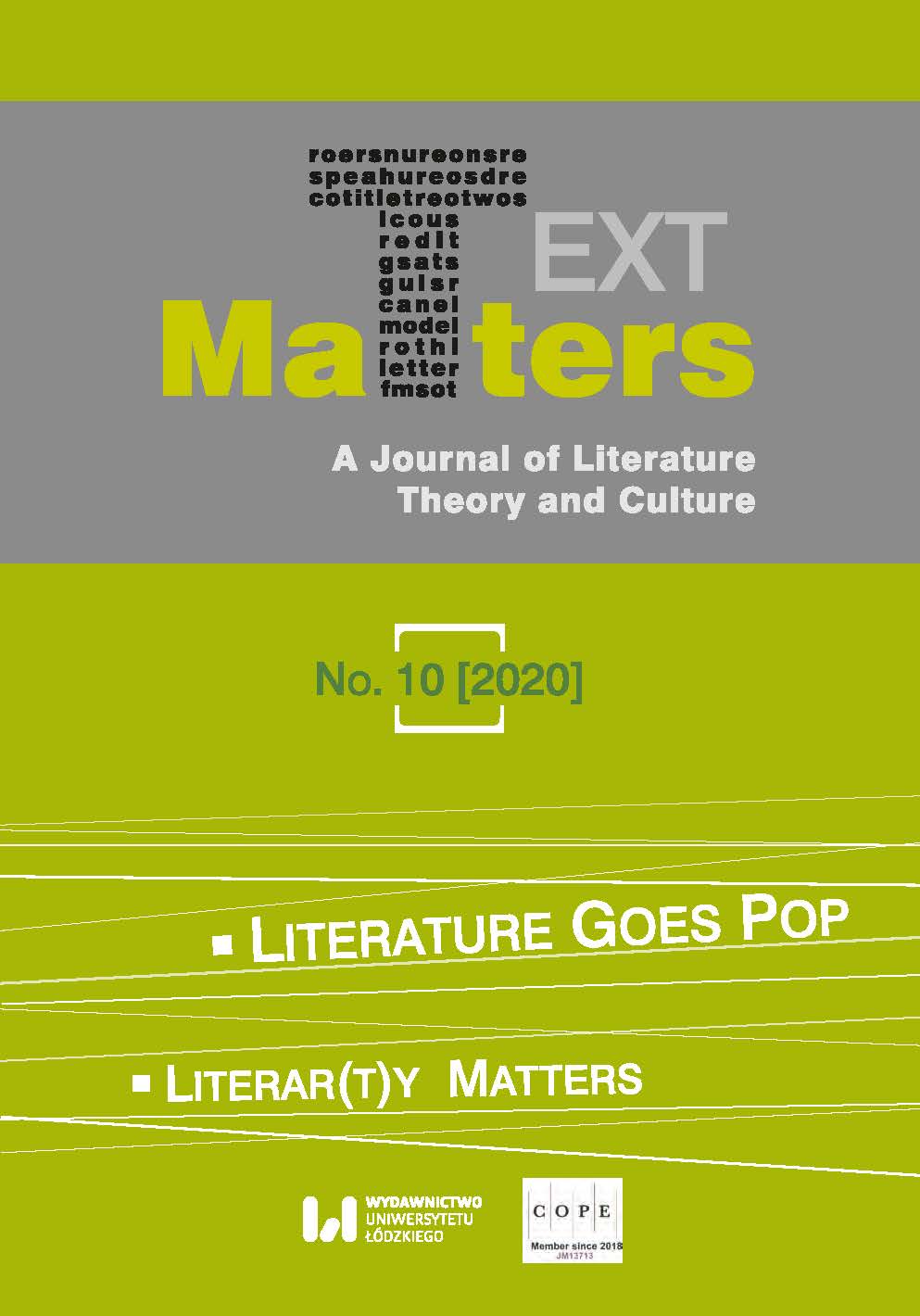Camp and Pop: David Bowie, Oskar Schlemmer, Madonna and Janelle Monáe
DOI:
https://doi.org/10.18778/2083-2931.10.05Keywords:
camp, authenticity, performance, queer, music videoAbstract
While contemporary pop culture is nowadays considered part of the cultural mainstream, its practices of codification and its use and circulation of signifiers are still shaped by its roots in counterculture. This leads to a second order esthetic that reflects upon mass culture and subverts it by means of transgression and rearrangement. This essay argues that this subversive logic of reference is closely linked to what Susan Sontag has described as “camp.” While doing so it not only sheds light on the aspect of subversion and identity building, but also on the aspect of performance and staging that plays an important role for camp, as well as pop culture and its play with artificiality and authenticity. As a consequence the concept of camp is used to examine the practice and performance of artists like David Bowie, Madonna, Christina Aguilera and Janelle Monáe, and finding structural similarity in their practice and production, which uncovers a tendency towards apersonal self-historization which is typical for pop and is closely linked to its ability to generate new meanings out of materials that stem from other contexts originally.
Downloads
References
Auslander, Philip. Liveness. Performance in a Mediatized Culture. Oxon: Routledge, 2008. Print. https://doi.org/10.4324/9780203938133
Google Scholar
DOI: https://doi.org/10.4324/9780203938133
Barthes, Roland. Camera Lucida: Reflections on Photography. Trans. Richard Howard. New York: Hill and Wang, 1981. Print.
Google Scholar
Becker, Colleen. “Aby Warburg’s Pathosformel as Methodological Paradigm.” Journal of Art Historiography 9 (2013): 1–25. Print.
Google Scholar
Blumenberg, Hans. Paradigms for a Metaphorology. Trans. Robert Savage. Ithaca: Cornell UP, 2010. Print. https://doi.org/10.7591/j.ctt7v7cn
Google Scholar
DOI: https://doi.org/10.7591/j.ctt7v7cn
“Camp.” Etymonline.com. Online Etymology Dictionary. Web. 7 Sep. 2020.
Google Scholar
Diederichsen, Diedrich. “Nachruf David Bowie: Wir selbst waren gemeint.” Zeit.de. Zeit Online 14 Jan. 2016. Web. 1 Apr. 2019.
Google Scholar
Diederichsen, Diedrich. Über Pop-Musik. Cologne: Kiepenheuer & Witsch, 2014. Print. https://doi.org/10.30965/9783846757673_011
Google Scholar
DOI: https://doi.org/10.30965/9783846757673_011
Eadie, William F. “In Plain Sight: Gay and Lesbian Communication and Culture.” Intercultural Communication: A Reader. Ed. Larry A. Samovar et al. Boston: Wadsworth Cengage Learning, 2009. Print.
Google Scholar
Ertin, Serkan. Hollinghurst, Camp and Closet. Newcastle upon Tyne: Cambridge Scholars, 2018. Print.
Google Scholar
Fischer-Lichte, Erika. Semiotik des Theaters. Tübingen: Gunter Narr Verlag, 1983. Print.
Google Scholar
Holert, Tom, and Mark Terkessidis. “Einführung in den Mainstream der Minderheiten.” Mainstream der Minderheiten: Pop in der Kontrollgesellschaft. Ed. Tom Holert and Mark Terkessidis. Berlin: Ed. ID-Archiv, 1996. 5–19. Print.
Google Scholar
Keazor, Henry, and Thorsten Wübbena. Video Thrills the Radio Star. Bielefeld: Transcript, 2007. Print.
Google Scholar
DOI: https://doi.org/10.14361/transcript.9783839407288
Murchison, Gayle. “Let’s Flip It! Quare Emancipations: Black Queer Traditions, Afrofuturisms, Janelle Monáe to Labelle.” Women and Music: A Journal of Gender and Culture 22 (2018): 79–90. Web. 7 Sep. 2020. https://doi.org/10.1353/wam.2018.0008
Google Scholar
DOI: https://doi.org/10.1353/wam.2018.0008
Oehmke, Philipp. “Wer oder was ist Camp’?” Spiegel.de. Spiegel Online 10 May 2019. Web. 7 Sep. 2020.
Google Scholar
Paglia, Camille. “Spiel der Geschlechter: David Bowie auf dem Höhepunkt der sexuellen Revolution.” David Bowie. Ed. Victoria Brookes and Geoffrey Marsh. München: Knesebeck, 2013. 35–60. Print.
Google Scholar
Robertson, Pamela. “What Makes the Feminist Camp.” Camp: Queer Aesthetics and the Performing Subject. Ed. Fabio Cleto. Edinburgh: Edinburgh UP, 1999. 246–78. Print.
Google Scholar
Sontag, Susan. Notes on “Camp.” London: Penguin, 2018. Print.
Google Scholar
Valnes, Matthew. “Janelle Monáe and Afro-Sonic Feminist Funk.” Journal of Popular Music Studies 29.3 (2017). Web. 7 Sep. 2020. https://doi.org/10.1111/jpms.12224
Google Scholar
DOI: https://doi.org/10.1111/jpms.12224
Downloads
Published
How to Cite
Issue
Section
License

This work is licensed under a Creative Commons Attribution-NonCommercial-NoDerivatives 4.0 International License.













